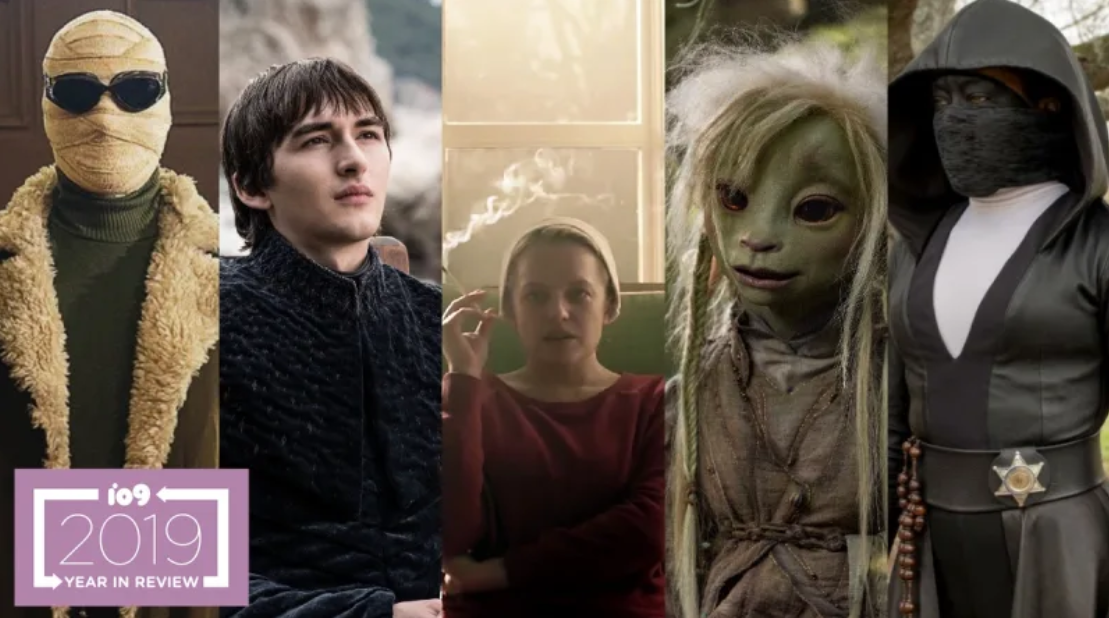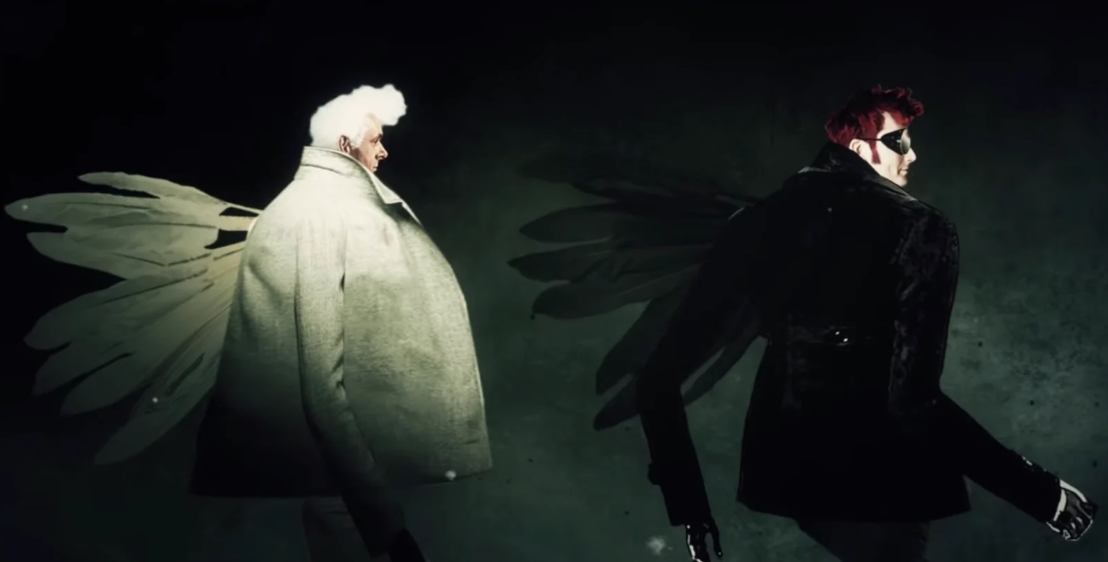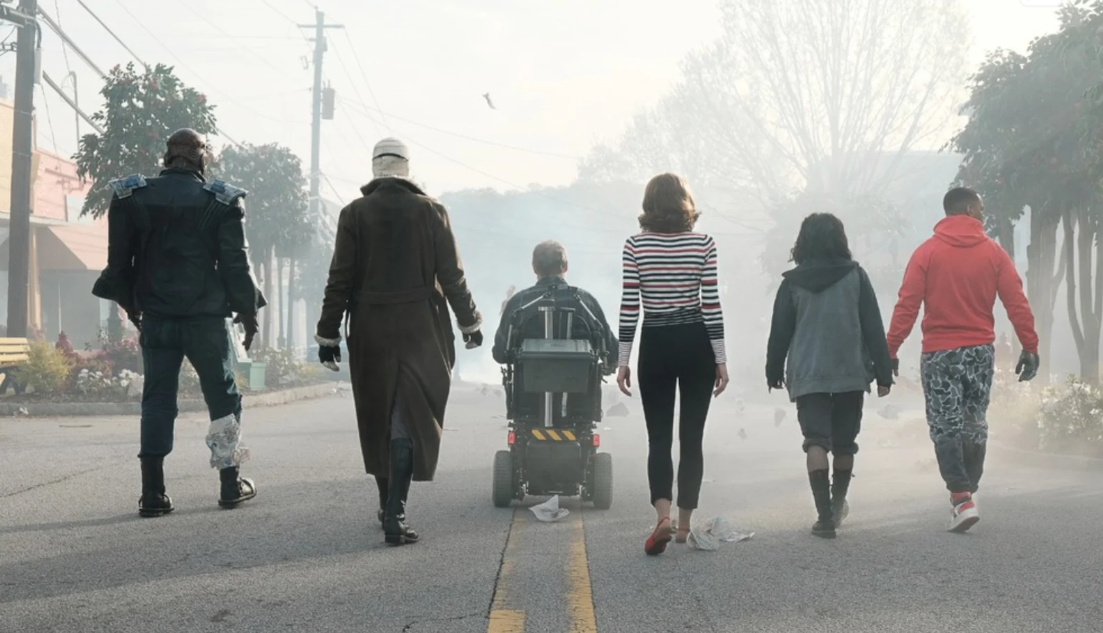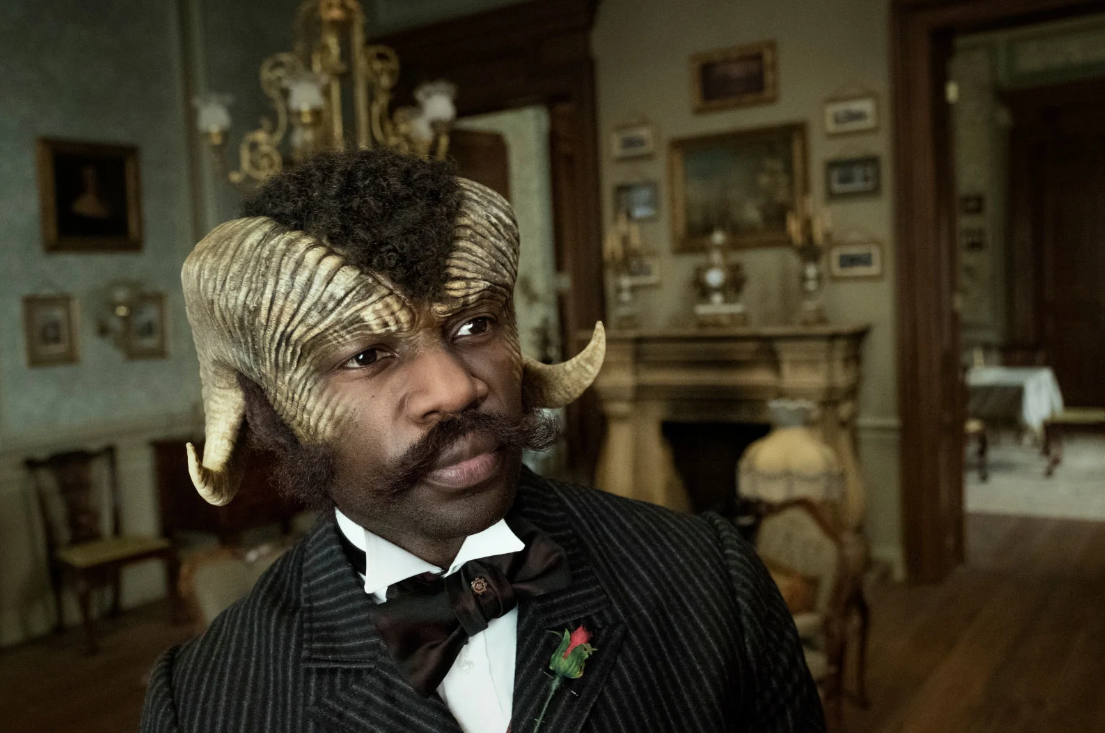2019 年 11 个最受欢迎(和 6 个最不尽如人意)电视剧盘点!
The 11 Best (and 6 Worst) TV Shows of 2019
By io9 Staff
 There was too much TV in 2019, but at least there was a lot of great TV.
There was too much TV in 2019, but at least there was a lot of great TV.
Image: DC Universe, HBO, Hulu, Netflix, HBO
You might have heard us say this once or twice already: there was a lot of television this year. We are but a few humble bloggers and could never watch everything out there but of the many TV series we did watch, we’ve narrowed down our most and least successful of 2019.
In past years the best/worst TV list had gotten a bit contentious around these parts. Surprisingly, we didn’t have any arguments over which shows went where this year. Take a look below and see if you agree.
Best
The Dark Crystal: Age of Resistance
Coming into 2019, no one would’ve expected the best fantasy show on television to be a show about puppets. In fact, no one would’ve expected to be able to care for puppets beyond a charming novelty at all. And yet Dark Crystal didn’t just defy expectations, it soared over them to deliver an intricate, character-driven saga of hope, loss, and timely messages of resistance. An achievement of both technical and emotional proportions, Age of Resistance combined a great story, fascinatingly complex characters, and some of the most exquisite craftsmanship around to deliver a tale unlike anything we’ve seen since its predecessor. It was good to be back in Thra, and we really, really hope we’re back there soon.
Watchmen
The only way Damon Lindelof’s Watchmen was ever going to be able to hold a candle to Alan Moore and Dave Gibbons’ comic book (and not draw the ire of fans the way Zack Snyder’s cinematic adaptation of the series did) was by leading with a unique, distinct story that wasn’t merely a way to bring audiences back into a world devastated by a psychic squid. Watchmen has always been an exploration of what kind of world would drive normal people to wear masks in order to become costumed vigilantes. The HBO series has taken that core idea and used it as a framing device to dig into heavy, often painful truths about America’s history of anti-black racism that has defined our society.
Steven Universe
Steven Universe is one of the few shows from the past few years that’s only gotten better and better with each season, but between the dramatic last episodes of season five, The Movie and Steven Universe Future, the Crewniverse took the series to a whole new level in 2019. From the very beginning, Steven Universe was a series about emotional growth, and it took us all on epic journeys of self-discovery and understanding the power of loving one’s self as much as you can love others, which is the kind of simple, yet powerful idea we could all stand to internalize and make part of our everyday lives.
 The fabulous opening to Good Omens.
The fabulous opening to Good Omens.
Image: Amazon (Youtube)
Good Omens
The Amazon adaptation of Neil Gaiman and Terry Pratchett’s Good Omens could have been a wild mess. Instead, we got a wild ride with a lot of heart. The wigs alone were worth the price of admission but the pitch-perfect casting of the angel Aziraphale (Michael Sheen) and the demon Crowley (David Tennant) bolstered an imaginative look at the fight between heaven and hell. And, thanks to it being strictly a six-episode limited series, we got to watch a perfectly complete story that wasn’t trying to sell us on anything more. That said, the cosplay and fanfic will keep going forever.
Star Trek: Discovery and Star Trek: Short Treks
Discovery had a lot to prove coming off the back of a very uneven debut season, one that traded lofty ideas for easy fanservice at the cost of some of its most compelling characters. That it did so by hyping up appearances from fan-favorite Trek elements like the legendary Spock, Captain Pike, and even the classic Enterprise gave us some cause for concern. But ultimately, Discovery season two provided a much better balance between its nostalgic impulses for Trek’s yesteryear with a story that let its most fascinating new characters come to the for, diving deep into the likes of Tilly, Michael, Saru, Stamets, and Culber in ways the first never really cared to spend the time to.
It wasn’t without its bumps—it took a little too long to get to its central mystery with Spock, and there was that whole twist-within-a-twist-that-wasn’t-really-a-twist-at-all thing over the Red Angel that felt like an odd bit of wheel-spinning. But compelling character work and an audaciously bold eye for the future heading into its next season gave us a lot more hope for what’s to come.
On top of all that, it was also accompanied by the delightful miniseries Short Treks. Free of having to abide by an overarching narrative, these small slices of Star Trek storytelling could tell short, beautiful stories that championed everything that makes Star Trek such an indomitable franchise, its humor, its intelligent curiosity, its acceptance and understanding, and its beautiful hope for a bright future. Getting either Discovery’s round two or Short Treks this year would’ve been a treat. Getting both feels like a good sign that Star Trek is still up for some boldly going as it re-enters our lives in a big way thanks to streaming.
What We Do in the Shadows
We were already obsessed with Taika Waititi and Jemaine Clement’s 2014 vampire comedy, so it didn’t take much for us to extend that passion to FX’s TV adaptation. It helped, of course, that the film creators were heavily involved in the series, and that the clever premise (ancient vampires awkwardly trying to blend into the modern world) and the mockumentary format felt tailor-made to work on the small screen. But the show wasn’t just a retread of the near-perfect film that inspired it; WWDITS shifted the action from New Zealand to Staten Island, and filled its cast with enormously appealing actors (yes, even the guy who played the energy vampire) and guest stars (“The Trial” was a standout, but how about Star Trek: Discovery’s Doug Jones as a wizened ghoul who just wants to party and eat New York pizza?) who utterly nailed the story’s necessary blend of mirth and mayhem. Vampires have been done to death, especially on TV, but WWDITS made bloodsuckers feel fresh and hilarious with every new episode.
American Horror Story: 1984
With just nine episodes, the ninth installment of American Horror Story may have been the anthology series’ shortest yet—but that abbreviated season only helped Ryan Murphy and Brad Falchuk’s FX stalwart crackle with elevated energy from start to finish. AHS: 1984 fully delivered as a lovingly accurate homage to gore-soaked 1980s slasher films and the 1980s in general; the hair was huge, the shorts were super-short, and the soundtrack was an incredibly well-curated nostalgia rush. But 1984 wasn’t just campy summer-camp terrors; instead of feeling like one long Friday the 13th tribute, we got a particularly well-plotted spin on that classic AHS technique of jumping forward and back in time to explore character motivations, as well as some very smart commentary on America’s obsession with true crime. Above all, though, 1984 wanted to entertain, and in that it succeeded, delivering one of the strongest and most consistent AHS seasons yet. Kajagoogoo forever!
Castle Rock
The wonders of Sissy Spacek aside, the generally good first season of Hulu’s Stephen King-inspired, J.J. Abrams-produced anthology series left us wanting more—or perhaps less, as a few too many ambiguities were left twisting in the wind at the end. Season two, which returned to Maine’s most malevolent patch of real estate, introduced a new set of characters (including some familiar faces from some of King’s most beloved works) and several new conflicts, ramping up the action and the overall pace of the series, as well as the supernatural elements. A clever mid-season reveal offered a way to tie seasons one and two of Castle Rock together, while building to a finale that pushed the show’s mythology to new heights of intrigue. We were still left wanting more, but this time more meant “another season ASAP, please.”
 We were doomed to love the Doom Patrol.
We were doomed to love the Doom Patrol.
Photo: Warner Bros.
Doom Patrol
In a world full of comic book shows that often conflate being grounded with fully downplaying the inherent wildness of actual comic books, Doom Patrol stood out. It felt like a series that wasn’t at all interested in shying away from its inner weird. Though the show existed alongside DC Universe’s Titans, Doom Patrol dug into the more whimsical, high concept sci-fi that makes that world an interesting place, all the while giving each member of the team meaningful character arcs that explored their tragic origin stories in novel ways. We can’t wait for season two.
The Expanse
This website’s intense love for The Expanse has been well-documented over the years, but just because we’ve championed the show’s previous three seasons didn’t mean the fourth, which marked the show’s first on new home Amazon, would get an automatic berth on our list of top shows. It’s here because season four marks yet another excellent outing for a superior sci-fi show we’ll never, ever take for granted again. Its thrilling plot follows James Holden and the Rocinante crew to an embattled planet in an unexplored solar system, a new frontier filled with valuable natural resources but also ancient remnants of the deadly alien protomolecule. Every episode of the new season—presented for the first time as a binge-ready single drop—underlines why we fell in love with The Expanse in the first place: its ability to tell a huge, exciting, visually dynamic story that honors real science as part of its approach to science fiction, and that gives us diverse, complex characters to guide us through it all.
The Mandalorian
Steps up to the microphone “Baby Yoda.” Steps down
Really, the write up could just be those two words. Since The Mandalorian’s debut in November the adorable, mysterious, 50-year-old green child has taken the world by storm like no other Star Wars character has done before. And yet, his inclusion in The Mandalorian is just one of the many reasons why the first-ever live-action Star Wars TV show is so fantastic. Executive producer and primary writer Jon Favreau has created a show that harkens back to the original Star Wars trilogy. It’s gritty, grimy, and...a little repetitive but, it’s Star Wars, so that iconography covers a lot of it. Thanks to a diverse and talented group of filmmakers (Dave Filoni, Deborah Chow, Bryce Dallas Howard, Rick Famuyiwa and Taika Waititi) every episode shines bright; the production design is out of this world, the spectacle is big as big can be, and the music gets better with every single listen. At the heart of it all, is a unique father-son relationship that’s complex in ways Star Wars relationships rarely are. The Mandalorian has only just begun but we can already tell it’s something special.
Worst
The Handmaid’s Tale
It’s frustrating how far The Handmaid’s Tale has tanked. Season one was a harrowing story of survival against a dystopian theocracy that, in a post-Trump world, felt increasingly plausible. A couple of years later and The Handmaid’s Tale has turned into a fantasy show. In season three, June repeatedly avoided consequences for her rebellious actions while plotting an escape for dozens of Gilead’s children—a plan that, in any other season, would’ve failed miserably and led to her death. The inability for the series to follow the rules of its own world, combined with disappointing side character development, Nick’s bizarre reveal, and the custody subplot, made for a disappointing story that now doesn’t have anywhere to go.
American Gods
American Gods’ behind-the-scenes turmoil no doubt shoulders quite a bit of the blame for its uneven second season, which finally arrived in February, a TV eternity after its first season finale in June of 2017. Fans were already primed for the absence of some favorite characters who’d departed along with the Starz series’ original showrunners, but there was no way to anticipate just how great the drop in quality would be from season one, as well as the ways in which the Neil Gaiman adaptation would display such uncareful handling of certain thorny themes (including lynching). By the time the season two finale rolled around, the takeaway was that a show which had once dazzled us on many levels had left us rather underwhelmed. Will the next installment, which will feature the third American Gods showrunner in as many seasons, turn the ship around? And even if it does, will we care enough to watch?
Game of Thrones
Game of Thrones was never going to be able to please everyone as it entered its final stretch, but it’s still baffling to comprehend how much season eight missed the mark on wrapping up one of the biggest, if not the biggest TV series of the decade—arguably of the century.
Carving through its shortened run at lightning pace meant awkward peaks and valleys, character motivations cast aside for twists and turns that neither had the impact or time to actually land, major arcs came juddering to grand halts...and then there’s whatever the hell happened to Daenerys Targaryen. Maybe it needed more time to be set up. Maybe not all of it felt like a disappointing conclusion (yay, Arya gets to go explore things!). Maybe if there had been some more forethought given to setting up some of the out-there character moments, they would’ve felt more natural and less like sharp-turns dictated by a ticking clock. After all, a lot of the things that occurred by the end of Game of Thrones sound interesting on paper, it’s just the way they were doled out at such a breakneck speed meant it felt less like a descent into an atypically Westerosian bloodbath and more like a short and sudden dagger to the throat.
However you feel about Game of Thrones’ end, the fact that it’s ended with such controversy that we’re still talking about it months after the fact is an indicator that things could’ve been so much better, if only people knew what they were doing.
 David Gyasi as Argeus Astrayon.
David Gyasi as Argeus Astrayon.
Photo: Jan Thijs (Amazon)
Carnival Row
Amazon’s Carnival Row has already been renewed for a second season (with a new showrunner), so if you were a fan of this one, you’re in luck. Sadly, it never quite grabbed us. The premise, from creator Travis Beacham, was certainly unique—a fantasy tale filled with fae, fauns, and more in a pseudo-British/Victorian backdrop during a raging war. However, the allegories dealt with were messy and the background mystery was just one of a large pile of unfolding plots. Trying to cover all that while introducing viewers to a brand new fantasy world was perhaps a bit too much for a first outing. Here’s hoping they’re able to settle into something a bit more manageable next season.
Deadly Class
Deadly Class is what happens when a television show doesn’t know how to break away from its own source material. The series, based on the comics from Rick Remender (who also served as showrunner), was about a homeless teenager named Marcus who joins a secret school for assassins-in-training. What he discovers is a hormone-fueled violet underground filled with the children of gang leaders, secrets agents, and yeah...Neo-Nazis. It tried to be the cool Stranger Things, less Wham and more the Cure’s B-sides. Unfortunately, it didn’t work hard enough to be a good show on its own merit, lifting so heavily from the graphic novels that the dialogue felt more like diatribes than real conversations. It also didn’t help that some of the moments and characters—Fuckface in particular—came across as pathetic attempts to be edgelordy.
Titans
It was obvious from the jump that DC Universe’s Titans went through some significant retooling between its first and second seasons. But while the show’s wig budget certainly grew, the writer’s room seemed to lose its focus as it attempted to take the Titans’ story into a new, even darker space. All of the difficulties the team went through—dealing with Deathstroke’s return to the scene, Starfire sinking into an existential depression, and Dick running off to prison—were meant to tear them all apart in order to bring them back together stranger than ever. But by the second season’s end, barely anything interesting actually happened to the core group of heroes and you were left with the sense that when the show returns next, the Titans are still going to be in the process of figuring out what kind of unit they want to be.